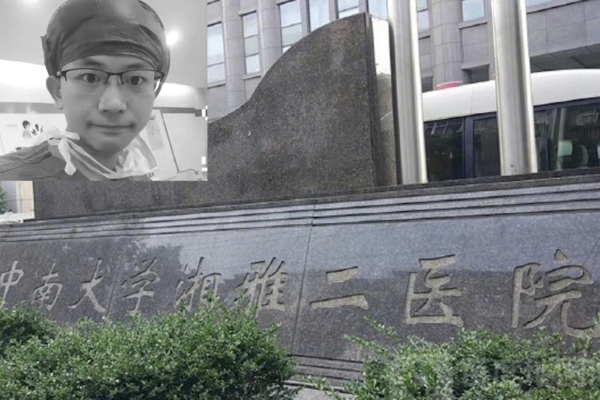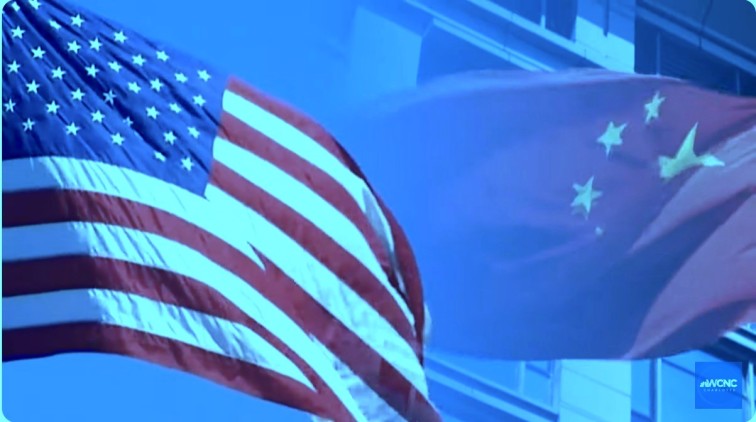The G7 Leaders' Summit was held from June 15 to 17, 2025, in Kananaskis, Alberta, Canada.
[People News] The G7 summit held in Canada concluded on June 17. During this summit, several countries called for a united approach to tackle issues related to the Chinese Communist Party, particularly various trade frictions.
The Financial Times noted that the European Union declined to hold a high-level economic and trade meeting with the CCP ahead of the EU-China summit scheduled for July this year. European Commission President Ursula von der Leyen remarked at the G7 summit that the pressing issue at hand is the CCP's unfair competition, rather than trade disputes among G7 partner nations.
Typically, high-level economic and trade dialogues between the CCP and the EU are part of a series of meetings leading up to the summit, serving as a foundation for the EU-China summit. These dialogues often result in public announcements of summit outcomes by the leaders of both sides. This year is particularly significant as it marks the 50th anniversary of diplomatic relations between the EU and China. However, due to a lack of meaningful progress in various trade negotiations, the EU has opted not to engage in high-level discussions with CCP leaders prior to the summit. The CCP's efforts to persuade Europe to jointly resist U.S. tariffs and counterbalance American influence were once again shown to be unsuccessful following the G7.
Recently, the EU and the CCP have been embroiled in multiple trade conflicts. This includes EU countries imposing tariffs on Chinese electric vehicles and the CCP levying anti-dumping duties on EU brandy, as well as launching anti-subsidy investigations into pork and certain dairy products. In the past few weeks, the EU has also prohibited Chinese medical devices from participating in most public procurement contracts and has imposed anti-dumping duties on Chinese hardwood plywood.
According to reports from foreign media, the summit between the Communist Party of China (CPC) and the European Union (EU) is scheduled to take place on July 24-25 in Beijing and Anhui, respectively. In a departure from previous practices, Premier Li Qiang will represent the CPC leader at this summit. Analysts suggest that Brussels perceives this downgrade as a rejection.
At the G7 summit, Ursula von der Leyen also proposed to Trump that they collaborate to address issues related to the CPC. Reports indicate that von der Leyen expressed that Beijing is unwilling to comply with international system rules, ignores intellectual property protections, and utilizes extensive subsidies to aim for dominance in global production and supply chains. This behaviour is not fair competition but rather a market distortion. The core issue stems from the CPC's entry into the World Trade Organisation in 2001, rather than trade relations among G7 partners. Trump concurs with von der Leyen, believing that the current global trading system is not functioning properly. Von der Leyen suggested that the G7 should use its negotiating power to collectively tackle the challenges posed by the CPC.
Simultaneously, Japanese Prime Minister Ishiba Shigeru called for a united response to the Chinese Communist Party (CCP) during the G7 summit. He emphasised that cooperation and a unified approach from the G7 are crucial in countering the threats posed by both China and Russia. He expressed concern that allowing Russia to 'unilaterally change the status quo in Ukraine through force' would accelerate the CCP's hegemonic actions. At a press conference on the 17th, he stated: 'I highlighted the importance of deeper G7 engagement in regional affairs, and the leaders of various countries reached a consensus on enhancing internal cooperation within the G7 to address the various issues surrounding China (the CCP).' He urged the G7 to present a unified front in addressing issues related to the CCP and North Korea. Prime Minister Ishiba and other leaders confirmed their commitment to collaborate on issues such as the CCP's increasing economic coercion.
In recent years, the G7 summit has consistently focused on curbing the threats posed by the CCP, with this meeting frequently referencing the CCP's global threat. Trump's early return to the United States due to Middle Eastern issues may have resulted in a diminished expression of U.S. concerns regarding the CCP at the summit. Otherwise, there could have been greater consensus on constraining the CCP during the discussions.
In the chair's concluding remarks, there was a call for the CCP to curb 'harmful overproduction,' and serious concerns were raised about the CCP's 'destabilising actions' in the East China Sea and South China Sea, reaffirming the importance of peace and stability in the Taiwan Strait. Regarding critical mineral supply chains, concerns were voiced about the CCP's stringent scrutiny of rare earth exports, with statements indicating that 'non-market behaviours are threatening the ability to acquire resources.' △
(Originally published by People News)









News magazine bootstrap themes!
I like this themes, fast loading and look profesional
Thank you Carlos!
You're welcome!
Please support me with give positive rating!
Yes Sure!